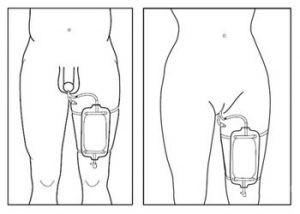A nurse is reviewing the guidelines for documenting client care. Which of the following actions should the nurse plan to take?
Avoid quoting client comments when documenting.
Document giving a dose of pain medication just prior to administration.
Limit documentation to subjective information.
Document information telephoned in by a nurse who left the unit for the day.
The Correct Answer is A
Quoting client comments verbatim in the documentation should be avoided. Instead, the nurse should summarize or paraphrase the relevant information provided by the client. This helps to maintain confidentiality and professionalism in the documentation process.
Documenting giving a dose of pain medication just prior to administration: Documentation should accurately reflect the timing and administration of medications. It is not appropriate to document giving a dose of medication just prior to administering it, as it would not provide an accurate account of the client's care. The medication administration should be documented after it has been given.
Limiting documentation to subjective information: Documentation should include both objective and subjective information. Objective information refers to measurable and observable data, while subjective information represents the client's thoughts, feelings, and experiences.
Including both types of information provides a comprehensive view of the client's condition and the care provided.
Documenting information telephoned in by a nurse who left the unit for the day: Documentation should only include information that has been directly observed or obtained by the nurse providing care. It is not appropriate to document information telephoned in by a nurse who is not present and available to verify or provide additional details. Each nurse should be responsible for documenting their own observations and actions.
Accurate and comprehensive documentation is crucial for maintaining continuity of care, ensuring effective communication among the healthcare team, and promoting the client's safety and well-being. Nurses should adhere to institutional policies and guidelines regarding documentation practices and prioritize accuracy, confidentiality, and professionalism in their documentation.
Nursing Test Bank
Naxlex Comprehensive Predictor Exams
Related Questions
Correct Answer is ["A","B","C"]
Explanation
Coiling the tubing on the bed above the collection bag helps to prevent the backflow of urine and maintains the integrity of the drainage system. This positioning allows for proper gravity drainage and prevents urine from pooling in the tubing.
Instructing the client to hold the drainage bag at waist height helps to ensure proper urine flow and prevent tension or pulling on the catheter. This positioning also prevents the bag from dragging on the floor, reducing the risk of contamination or accidental disconnection.
Securing the tubing with adhesive tape to the lower abdomen helps to prevent accidental pulling or dislodgment of the catheter. This ensures that the catheter remains in place and minimizes the risk of trauma or discomfort for the client.
If a sterile urine specimen is required, it should be collected using a separate sterile container and not directly from the urinary drainage bag. The drainage bag may contain contaminants or non-sterile elements, so a separate specimen collection method should be employed to ensure accuracy and prevent contamination.

Correct Answer is B
Explanation
Crackles heard in the lungs.
Fluid overload occurs when there is an excessive accumulation of fluid in the body, and it can occur in clients receiving enteral tube feedings. Crackles heard in the lungs, also known as rales, are abnormal lung sounds that can indicate the presence of fluid in the lungs. These crackling sounds occur when there is an excess of fluid in the alveoli or when air passes through fluid- filled airways. Crackles can be heard during auscultation of the lungs using a stethoscope and are a significant sign of fluid overload.
decreased skin turgor in (option A) is incorrect because it, is a sign of dehydration rather than fluid overload. Decreased skin turgor occurs when the skin lacks elasticity and is often seen in clients who are dehydrated.
weight loss in (option C) is incorrect because it, is not typically associated with fluid overload. Fluid overload usually results in weight gain or fluid retention rather than weight loss.
decreased blood pressure in (option D) is incorrect because it, is more commonly associated with hypovolemia or fluid deficit rather than fluid overload. In fluid overload, blood pressure may be elevated due to increased fluid volume.
In summary, crackles heard in the lungs are a manifestation of fluid overload and can be a significant sign for the nurse to assess and address in a client receiving enteral tube feedings.
Whether you are a student looking to ace your exams or a practicing nurse seeking to enhance your expertise , our nursing education contents will empower you with the confidence and competence to make a difference in the lives of patients and become a respected leader in the healthcare field.
Visit Naxlex, invest in your future and unlock endless possibilities with our unparalleled nursing education contents today
Report Wrong Answer on the Current Question
Do you disagree with the answer? If yes, what is your expected answer? Explain.
Kindly be descriptive with the issue you are facing.
